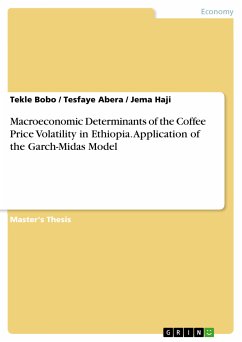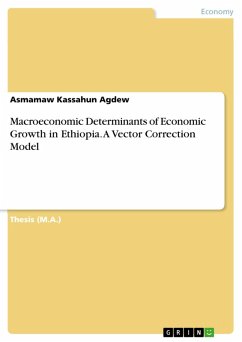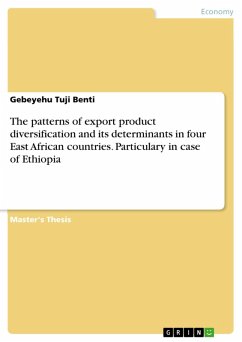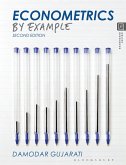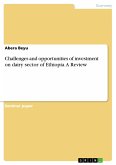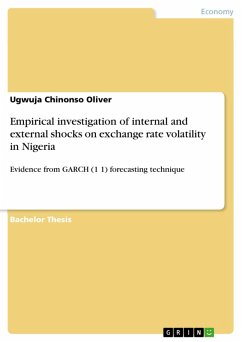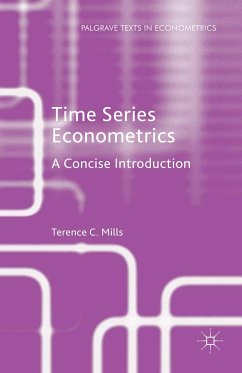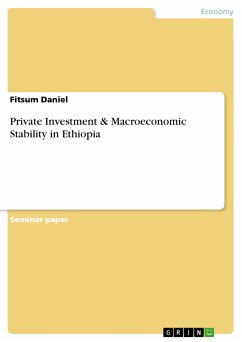Master's Thesis from the year 2020 in the subject Economics - Statistics and Methods, grade: 24, Haramaya University, language: English, abstract: Application of GARCH type model is a key for modeling and forecasting volatility for high frequency data such as daily commodity price. Following the same framework, the objective of the present study is to apply the multiplicative GARCH-MIDAS model for daily exported coffee price as proxy of daily total coffee price of Ethiopia over the period of 1-1-2008 to 7-17-2018 with the purpose of fitting and forecasting coffee price returns volatility. The GARCH-MIDAS model decomposes the conditional variance as short-term component of GARCH (1,1) process, and long-term component, with monthly frequencies of macroeconomic variables. In this study exchange rate (nominal exchange rate), inflation rate (general inflation), interest rate (lending interest rate), fuel oil price (price of imported petroleum and petroleum production), total consumption and money supply (broad money) macroeconomic variables were employed through MIDAS specification using beta-weighting scheme to analyze impact of the variables on the long-term volatility component. For fitted ARMA (1,1) of coffee price return ARCH effect test on the residual from the mean model revealed the existence of time varying conditional variance for the selected mean model. A conditional variance model GARCH (1,1) was selected and used to model the conditional variance of coffee price return with Quasi Maximum Likelihood along with Bayesian estimation methods and both estimation procedures indicated the persistence of conditional variance observed even for small sample under Bayesian estimation framework. Asymmetry test show the insignificance of the asymmetric term, while Lundbergh and Terasvirta Lagrange Multiplier and the Li-Mak portmanteau test for the residual of GARCH model show the existence of time varying unconditional variance and made call for GARCH-MIDAS model. From the result of estimated GARCH-MIDAS model exchange rate and inflation rate were found to be the best drivers of coffee price volatility in Ethiopia and used for in and out of sample forecast. Finally, the Mean Absolute Error Root Mean Square Error and Diebold Mariano test were used for evaluating and comparing the forecasting ability of GARCH-MIDAS component model against standard GARCH (1,1) model which indicated that, including exchange rate and inflation rate make efficient forecasting of coffee price volatility in Ethiopia.
Dieser Download kann aus rechtlichen Gründen nur mit Rechnungsadresse in A, B, BG, CY, CZ, D, DK, EW, E, FIN, F, GR, HR, H, IRL, I, LT, L, LR, M, NL, PL, P, R, S, SLO, SK ausgeliefert werden.

